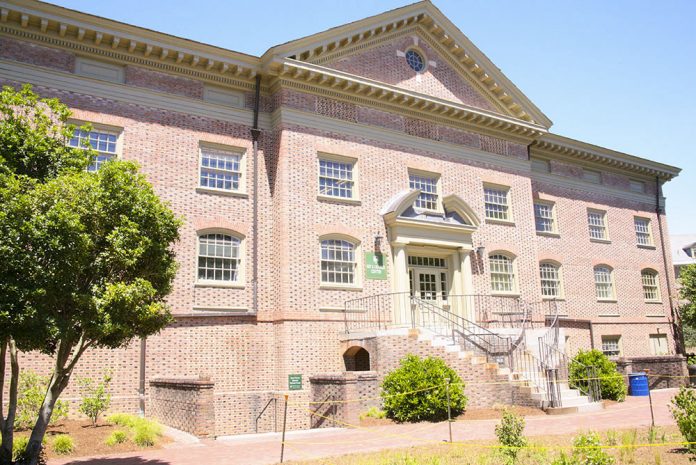Thursday Feb. 28, the Gender, Sexuality, and Women’s Studies Program at the College of William and Mary hosted Washington University in St. Louis Professor Douglas Flowe. During his time at the College, Flowe talked about his current project entitled “The Crucible of Blackness.” The book focuses on African-American men and the politics of black criminality in early 20th century New York City.
According to Flowe, crime is often a response to the dominant individuals of society and their affect on the subordinate individuals. For his book, Flowe studied the use of crime in manners of subsistence, pleasure, violence and patriarchal influence.
“[Patriarchal crimes] defined by actions motivated by struggles against the suppression amounts to the roles of criminals which African-American men experienced and the desire to establish and maintain domestic household authority,” Flowe said.
Throughout his lecture, Flowe intertwined nonfiction stories with fact to elucidate the message.
Flowe shared a particular story about Izzy and Eddie White — an African-American couple who lived in Brooklyn during the 1890s. Izzy White was a business owner who ran her business from her home. Her husband Eddie struggled with the concept which oftentimes led to marital spats in their home. Neighbors reported hearing Eddie White shout about shooting his wife with a gun, while Izzy White would retaliate with threats of “getting rid” of him. Eventually, Izzy White’s brother murdered Eddie, and considering circumstantial evidence, Izzy White was convicted of manslaughter.
“This is a tragic story which highlights the interconnected fates and frustrations of the American man and woman,” Flowe said. “Izzy White’s desire to run her business and to live the sort of life that she was living before she was married and buying the house with proceeds of her own business, said something about the determination that African-American women often have to determine their own fate.”
The focal point of Flowe’s lecture was his oration of his second chapter of his book, entitled “Sex, Blood, Guns, and Gambling: Pleasure, Profit, and Peril in New York City’s Black Saloons.” Flowe concentrated on crime that took place in the public, commercial, sexual, domestic and carceral spheres. In this chapter, he takes a look at the segregation and complications that take place in the commercial sphere, specifically in saloons.
To study the saloons, Flowe researched and read letters of William Banks, an African-American saloon owner who faced persecution by the law for allowing African Americans and whites to integrate and mingle in his saloon during a time of intense segregation.
“This business, as you know, is one that patrons themselves become maker or mar,” Banks said.
Banks was later arrested for his crimes. He stands as a symbol of external infiltration into the lives of saloon owners. Flowe studied an abundance of cases like Banks’, all with similar conclusions.
For his final anecdote on crime in saloons, Flowe shared the story of Isaac Bradford and the attempted assassination of his wife.
“It’s a story of how a woman chose self-sufficiency over the bonds of matrimony, and in the end, it cost a life,” Banks said.
“It’s a story of how a woman chose self-sufficiency over the bonds of matrimony, and in the end, it cost a life,” Banks said.
The wife of Isaac Bradford, an unnamed woman, performed and sang in a saloon while her husband was away at war. When he returned, Isaac Bradford was displeased with his wife’s new profession, claiming it brought shame to their family.
When Isaac Bradford asked his wife to quit her job, she refused, pushing him over the edge. Enraged, he went to the saloon where she was working and attempted to shoot her. He missed, but on his way out of the saloon, Bradford entered into an altercation with a police officer and shot him instead. He was later arrested and sentenced to life in prison.
Flowe attempted to encapsulate the dilemma of African Americans and the domestic sphere in early twentieth century New York with the stories that he shared.
Many of the students who attended the lecture stated that they were excited to read his book when it is released in the spring of 2020.
“It was really interesting to hear [Lowe] talk about the different types of crimes and exploring how they related to individual identity and the crucible,” Sam Laveson ’20 said.
“It was really interesting to hear [Lowe] talk about the different types of crimes and exploring how they related to individual identity and the crucible,” Sam Laveson ’20 said.
Laveson said he came away with a new emphasis on the sensitivity of the Black Lives Matter movement.
Sam Mukhtari ’19, found Lowe’s insight into minority communities enlightening.
“The reason I came to this talk is because I am a minority myself,” Mukhtari said. “I associate with a lot of the minorities that live in the marginalized communities. As far as generally, in terms of police brutality, discrimination, and racism, [Flowe] did a brilliant job of covering them.”

